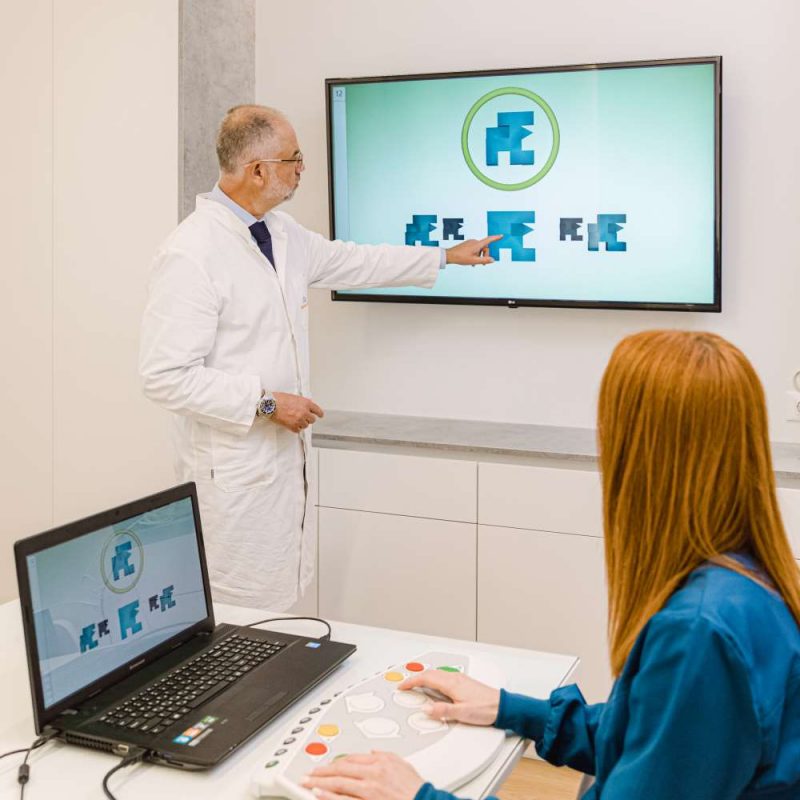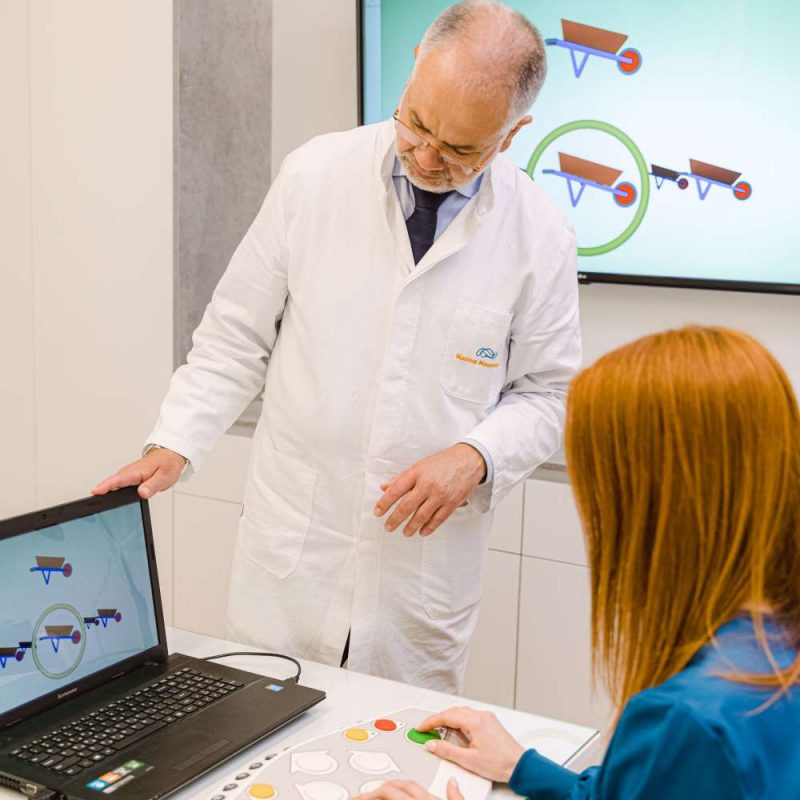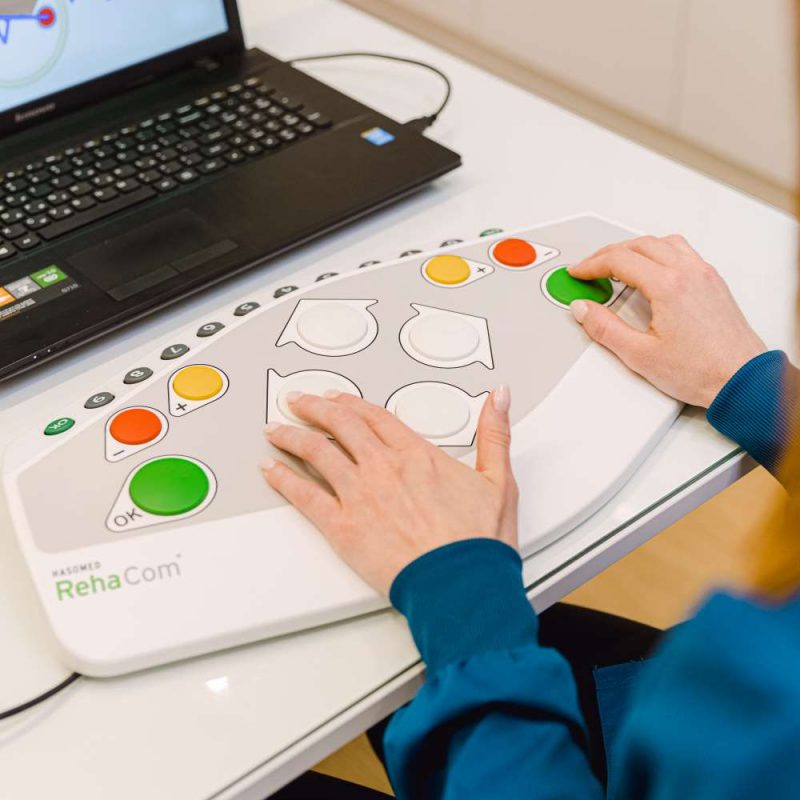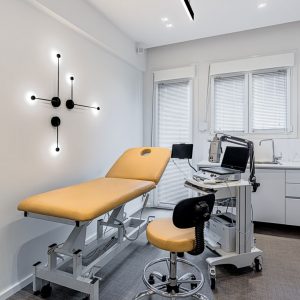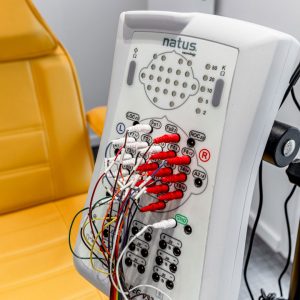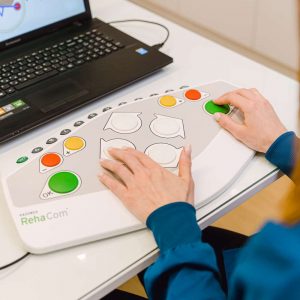Unit
Neurorehabilitation
Αρχική / Neurorehabilitation Unit
Information
for the unit
What is;
- Neurorehabilitation is an organized treatment plan for the dysfunction that the disease causes in the life of the patient and the family.
- Neurohabilitation is organized and supervised, for each patient individually, the neurologist , in collaboration with the clinical neuropsychologist and other specialists
- Through it evaluated and treated cognitive and behavioral disorders that significantly affect daily life
- It is configured for patients suffering from illness, injury or disorders of the nervous system
What is he facing?
Purpose is the global approach complex neurological conditions according to developments in neuroscience and technology.
Through the Neuro-Rehabilitation program there can be:
- improving functionality of the patient
- reduction of symptoms
- enhancement of the patient’s well-being and quality of life
Targeted diseases
Some of the neurological diseases that can be treated are the folowing:
- E neonatal disorders (eg Alzheimer’s disease)
- Traumatic disorders (eg brain or spinal cord injury etc.)
- Infections (eg encephalitis)
- Vascular disorders (eg ischemic and / or hemorrhagic strokes)
- Multiple sclerosis
Program
neurorehabilitation
- The structured recovery program is configured with purpose:
- the return of the patient to the highest possible level of functionality and autonomy , while improving the quality of life of him (physically, emotionally, socially, etc.)
- meeting the needs of the patient , depending on the condition he has
- the active involvement of himself and his family, that is very important for the success of the program
How are the goals of the program achieved?
The goals of the program can be achieved in the following ways:
- pain management and of other symptoms of the patient, through specialized treatment
- preventive measures (eg lifestyle changes, diet)
- assistance in daily activities (eg basic cleaning, dressing, cooking, feeding, etc.)
- take measures to enhance patient autonomy and safety
- psychological services (eg psychotherapy for the management of anxiety, depression, etc. psychological support of themselves and / or their caregivers, counseling)
- recommendation and guidance for appropriate speech therapy
- recommendation and guidance for appropriate physical therapy (programs with exercises to improve movement, prevention / reduction of weakness, activities to improve mobility, muscle control, walking and balance)
- information and training of relevant and other carers on patient rehabilitation
- grant questionnaires evaluating the condition of the patient during the neurorehabilitation program, for its control and the collection of further information
Who are the experts working together to implement the program?
THE Neurologist organizes together with the collaborator Clinical Neuropsychologist , coordinates and supervises the Neurorehabilitation Unit and its respective functions
At the same time he collaborates with other specialized rehabilitation professionals :
- Clinical Psychologist
- Speech therapist
- Physiotherapist
- Occupational therapist
Often the “key” to the success of the program is the training and active participation of caregivers, as well as the implementation of part of the rehabilitation activities in the patient’s living space.
Our center has this possibility, namely:
- Training and support of caregivers to guide part of the program
- Offer home remediation services (tele-remediation)
The non-pharmaceutical interventions provided by our Center are:
- special neuropsychological program based on the patient’s cognitive-behavioral problems and cognitive empowerment (eg exercises / memory restoration techniques, computer cognitive rehabilitation: memory, attention, executive and visual-spatial functions)
- Cognitive-behavioral psychotherapy: training strategies for managing the effects and dysfunction caused by cognitive impairment. The goals of the treatment are:
- the stabilization or even the reduction of cognitive disorders
- recovering lost skills
- accepting their loss
- Speech therapy: depending on the difficulties faced by each patient, the treatment is different and aims at:
- in facilitating daily communication with relatives
- the utilization of communication possibilities
- their maintenance in some cases
- restoring the skills of comprehension and expression of speech
- In addition the management and counseling related to adequate and safe feeding and its disorders
